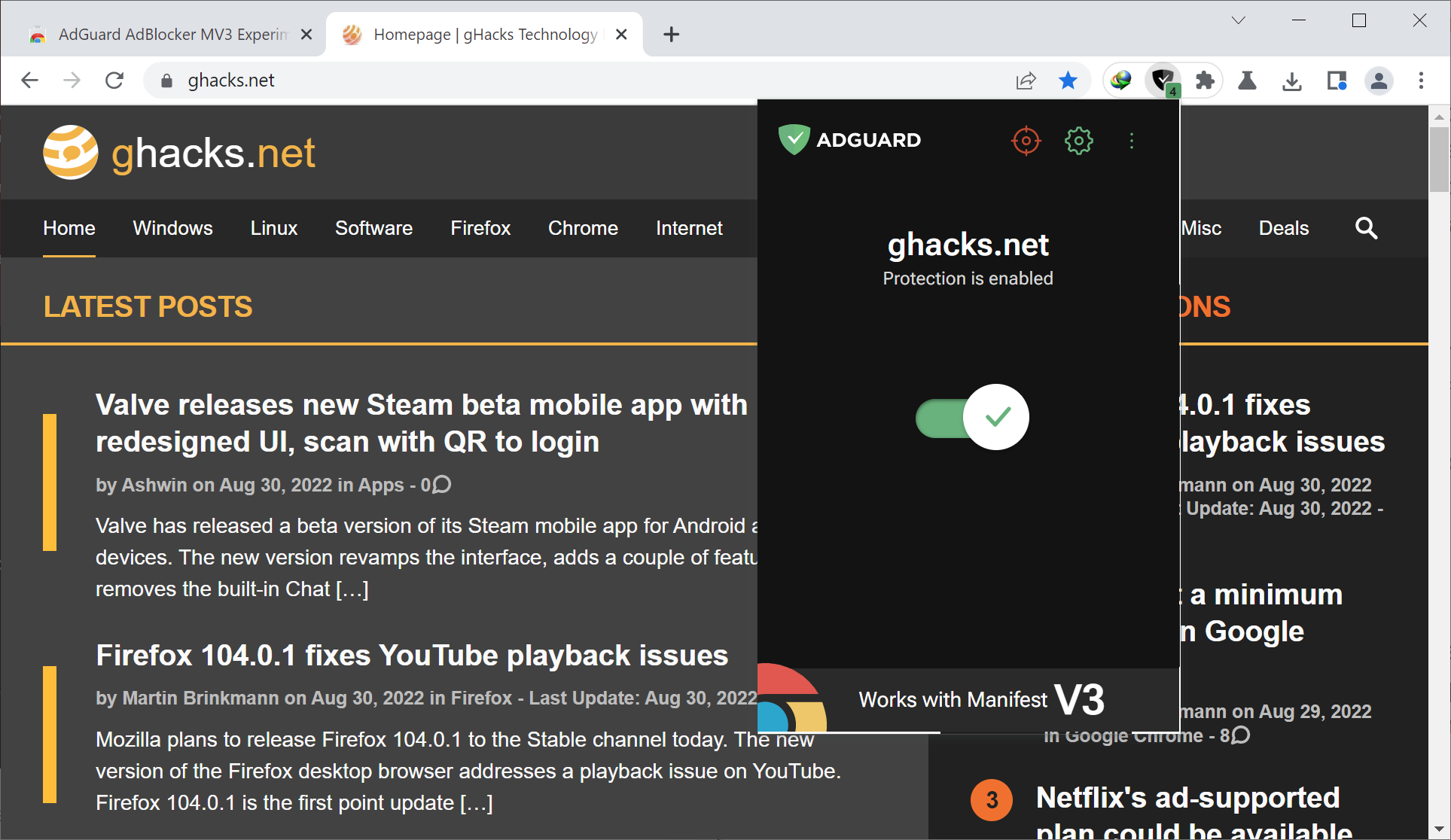Google's initial plan to start Manifest V3 experiments in several versions of its Chrome web browser have been postponed again by the company.

An update from December 9, 2022 on the Manifest V2 support timeline confirms that Google is pausing Manifest V2 phase-out changes.
Google has been working on the transition from Manifest V2 to V3 for years. The Manifest defines capabilities of browser extensions. It is essential, as it determines what extensions for Chrome can and can't do. Changes made to the Manifest may impact thousands of extensions.
Google claimed that Manifest V2 could be abused by malicious and shady extension developers and that they could impact the performance of the browser. The reworked set of APIs of Manifest V3 would do away with these limitations, according to the search giant. Google changed certain capabilities, including an important network API that was used by content blockers, privacy tools and other extensions.
The company's plans were criticized heavily, by the Electronic Frontier Foundation and by extension creators such as Raymond Hill, known for his extension uBlock Origin. Google modified Manifest V3 several times since the initial draft to meet more use cases, but did not fully address all concerns.
Some browser makers have announced plans to keep the old functionality in their browsers, while others plan to follow Google's lead on the change. Mozilla, maker of Firefox, plans to keep the relevant Manifest V2 capabilities enabled so that extensions can continue using them. Brave, Vivaldi and several other makers of browsers with integrated ad-blockers confirmed that their content blockers remain functional, even after the changes go live in stable versions of Chromium.
All browsers will support Manifest V3, however.
Chromium is the source of most browsers that are available today. Besides Google Chrome, Chromium powers Microsoft's web browser Edge, and dozens of other browsers, including Brave, Vivaldi and Opera, which we cover regularly here on Ghacks Technology News.
Back in September 2022, it became clear that some Manifest V3 APIs were not even ready at the time. A huge problem for extension developers who needed time to port their extensions to the new version of the Manifest.
Google's plan at the time was to enforce the use of Manifest V3 extensions by blocking Manifest V2 completely. The company has since then postponed the cut, so that Manifest V2 extensions continue to be supported in Chrome until at least January 2024.
The main issue right now that caused the postponing is caused by another API. The switch from using persistent background pages to Service Workers is giving extension developers whose extensions use the functionality headaches.
One bug causes Service Workers to unexpectedly shut down and die, another that Service Workers are being shut down forcibly after 5 minutes.
To address these issues, Google announced that it will postpone the changes that it had planed.
"For this reason, we’re postponing any January experiments to turn off Manifest V2 in pre-release channels of Chrome and changes to the featured badge in the Chrome Webstore, and we'll be evaluating all downstream milestones as well."
In other words: pre-release Chrome channels continue to support Manifest V2 extensions after January 2023. Google has yet to post an updated timeline regarding these changes.
Statistics by Chrome Stats suggest that less than 18% of Chrome extensions have been posted to Manifest V3 at the time of writing (via The Register)
Now You: any of your extensions affected by Manifest V3 negatively?
Thank you for being a Ghacks reader. The post Google delays Chrome Manifest V3 rollout once again appeared first on gHacks Technology News.


0 Commentaires